The safety and security of a website is the most crucial cog in the wheel of consumer trust in the eCommerce business. This is the reason they hire magento developer and entrust them with the security of the store. The news of a security breach on a website can ruin the supremacy reign of any popular website within days. The eCommerce businesses are generally tight-lipped about any such breach on their websites. Online ransom demands are the latest cyber extortion tools wherein the website is hacked, and the data is encrypted, which is decrypted once the business owners pay the ransom amount. It might seem like a scene straight from a movie, but it is quite a common scenario in online stores. These online stores for whom data is the most important asset find themselves in a spot of bother. The ethical dilemma they face is whether to pay cyber attackers or not? This article focuses on the core principle of prevention before the cure as it throws light on what all can be done to prevent a Magento store from such attacks? But before going into the specifics, let us first try to understand what ransomware is?
Ransomware – A Preamble
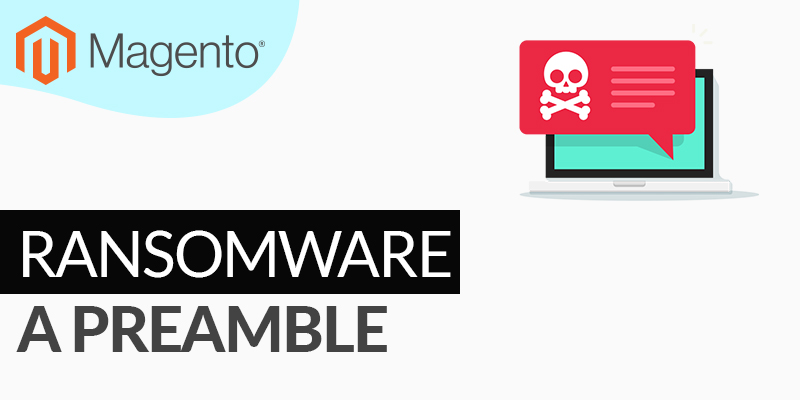
Ransomware is malicious software that can be used to attack sites using encryption technology. It exploits the loopholes in the code to encrypt the data with a powerful technique generally used to secure the user’s data on secure sites. The website is locked temporarily, and a ransom is demanded from the owner to unlock the website. The decryption key is handed over once the ransom is received. If he doesn’t pay the ransom amount is increased. The best possible solution is to avoid the attack altogether. Let us go through the tips to avoid this kind of attack.
Tip #1: Update the Platform Regularly
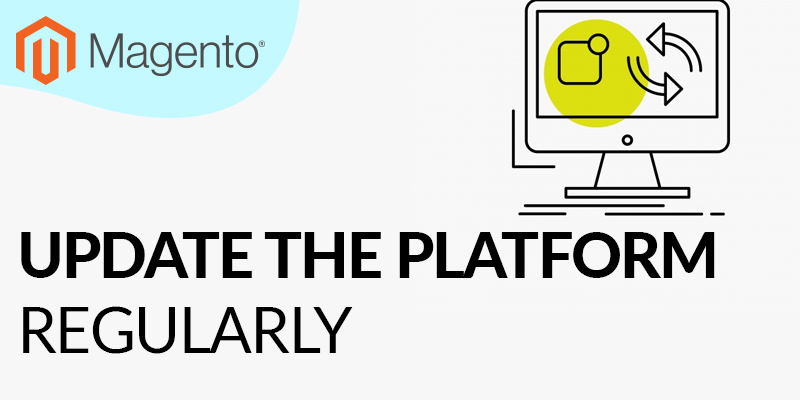
The latest version of any software is always the most secure one. The store owners should be vigilant about the latest security threats by remaining active on the Magento community and learning about the latest updates available on the security center. The cyberattack is possible only if there are vulnerabilities in the software code, and this can be averted by switching to the latest version of CMS as well as the third-party extensions as soon as it is released. The businesses can hire a magento development service in india to manage their hosting and take the onus of updating the platform as and when required.
Tip #2: Take Regular Backup
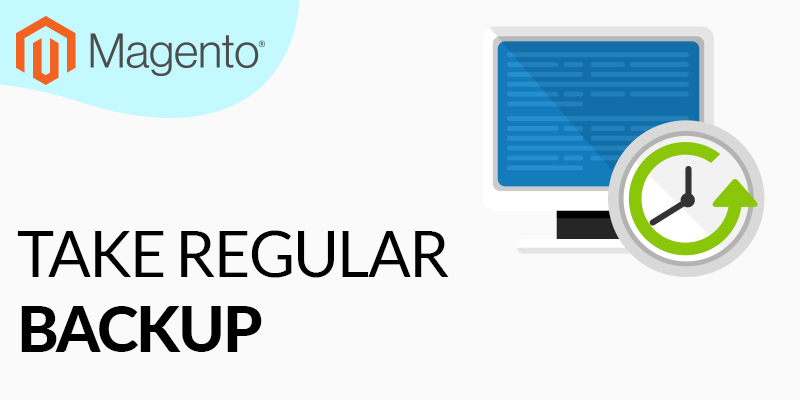
A disaster management plan can come in handy at the time of a ransomware attack. It includes having a backup mirror server with all the data available on the primary server. The backup of data from the primary server is done daily and during peak seasons on an hourly basis as well. In case of an attack, this backup server can fill in for the primary server. This backup server is situated at a remote location and not directly connected to the primary server to avoid any kind of attack through the primary server. In the meanwhile, the primary server can be diagnosed and fixed to free it from the ransomware. Another copy of backup scattered at multiple locations is also a wiser approach.
Tip #3: Choose Strong Protection Mechanisms
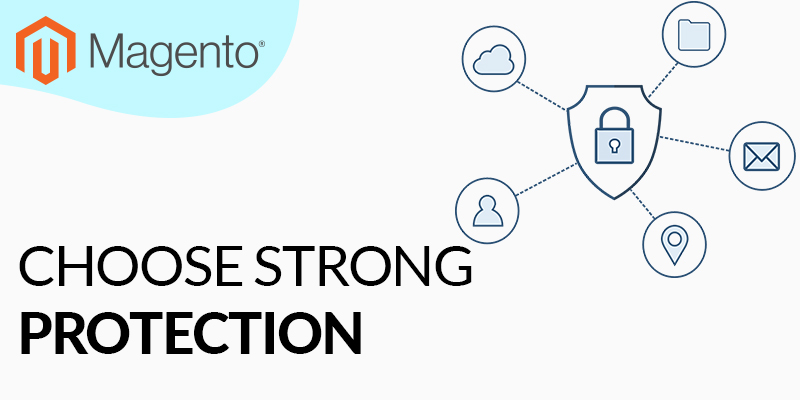
A suitable risk mitigation strategy should be devised wherein the risks are assessed. The risks are ranked, and their impact is evaluated. The risk matrix can be used to identify the severity of risks, and accordingly, a plan to eliminate or minimize the risk is formulated. The one size fits all approach will not work here, and the plan would be different for a different organization. A probable strategy to avoid the ransomware attack is application whitelisting. In this technique, the executable files or software that can remain active in the system are listed. This technique can filter out any potential attack through an executable file or malicious software. Patching is another technique which updates the system regularly with security patches developed for specific threats. The admin rights can also be restricted to avoid controlling the admin account remotely for initiating an attack. One needs to take the help of a cybersecurity expert to devise a risk assessment and mitigation strategy. Another simple approach can be ensuring the passwords are strong enough to make cracking it difficult.
Tip #4: Conduct Employee Awareness Programs
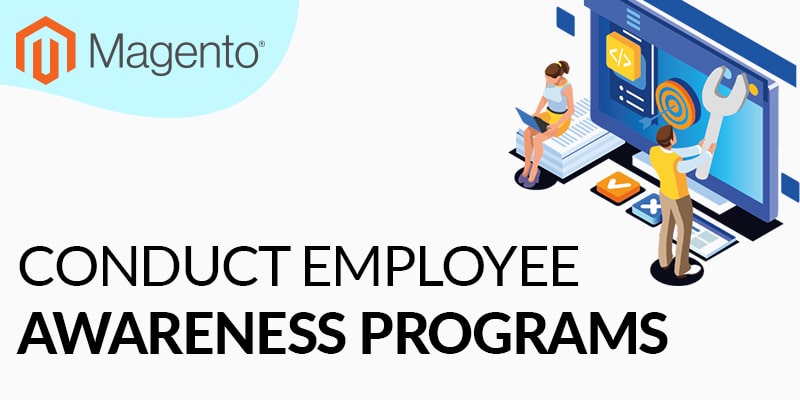
The most common reason for cyber attacks is the lackadaisical attitude of employees. Aware employees are the biggest asset of any organization. Keeping your employees aware of the possible security breaches through their unintentional actions is necessary. This keeps the employee vigil, and peer pressure plays its part in spreading secure habits throughout the organization. Organizations should hire an external security consultant to train employees with case studies and multimedia material.
Tip #5: Don’t Pay Ransom
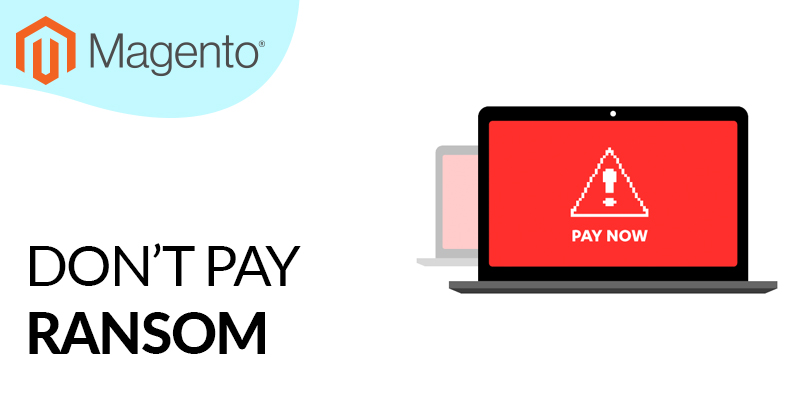
Due to a lack of preparedness, if the system is attacked, then the general tendency is to pay the ransom for sudden respite. Albeit the store starts functioning, but it boosts the hacker’s confidence further. He might target your store again shortly. The ransom amount is used for developing advanced malware to extort more organizations. It is better to have a plan B in place instead of paying the ransom.
Key Takeaways
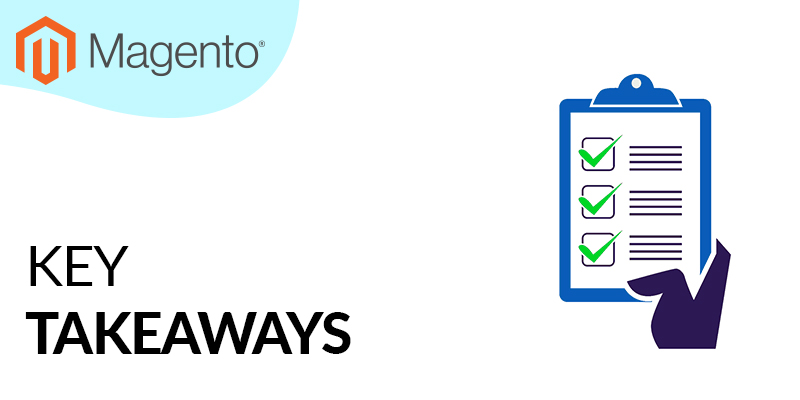
Instead of giving in to the demands of hackers, it is better to prepare yourself for avoiding the attacks altogether. One can hire magento developer to develop the impervious code to avoid these kinds of attacks. The workforce should be trained and made aware of the newest threats and safety measures deployed to avoid these threats. Businesses can hire magento development service in india to assess the security situation and conduct regular audits of the store to ward off the system’s weaknesses, if any. To conclude, have a contingency plan in place and take regular backups to minimize the system downtime.



